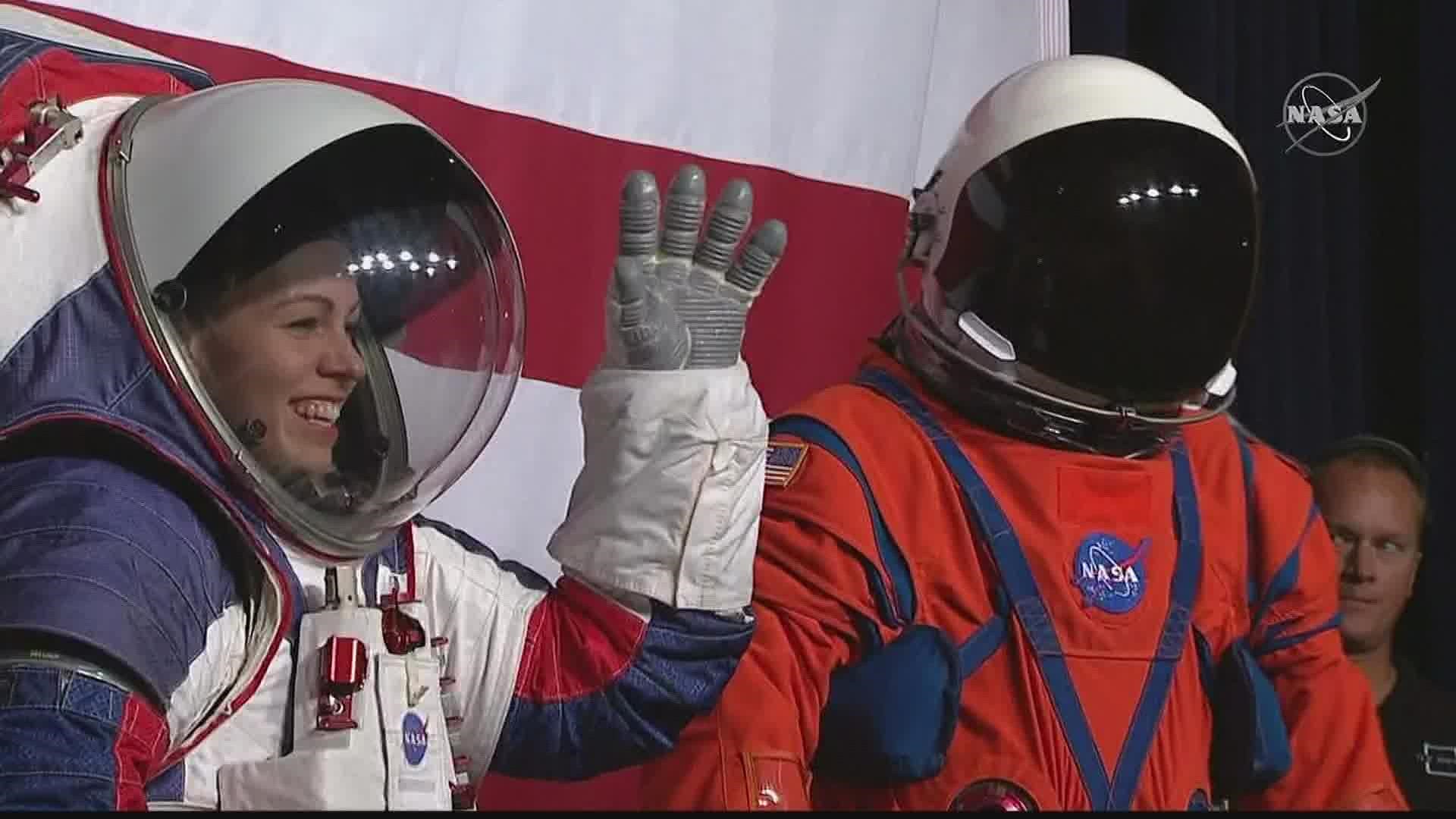ATLANTA — NASA is preparing to enter a new space age from Florida's space coast and a scientist in Georgia helping newly tapped Artemis astronauts step onto the moon with next-generation suits.
Thom Orlando is a professor of chemistry and physics at Georgia Tech and is a co-founder of the Center for Space Technology and Research. He has been working with NASA to design the space suits that future astronauts will wear as they walk on the lunar surface.
"It's a pretty harsh environment," the scientist explained about fashioning the gear.
On the moon, temperatures range from 250 degrees Fahrenheit in the light and -250 degrees in the shade. Returning to the moon means astronauts will work longer in those extremes.
That's where Orlando steps in.
He is focused on keeping the space explorers safe in their suits, specifically when it comes to the dangers of the moon's surface.
"We're developing, embedded within these materials, a way of sensing the radiation as radiation detectors," he said. "Our intent is to either have them on the equipment or the spacesuits that the astronauts are wearing so that you can get a real-time measurement of your exposure to radiation."
To help get perspective on how to create the technology for these suits, Orlando has worked with Harrison Schmitt, the last person to set foot on the moon during the historic Apollo lunar missions.
The Georgia Tech professor said the former astronaut is active in the NASA community and has even offered his own advice on how scientists can help keep future lunar explorers safe.
"One of the things that he was very adamant about, and that is pointing out the dangers associated with the dust on the moon and how dirty the spacesuits get," Orlando said of Schmitt's insight. "When you're out there trying to collect samples or if you fall over, this dust is a real problem."
Orlando said moon dust can damage space suits and get inside seals, complicating the mission and compromising an astronaut's safety.
That's why it's up to Orlando and a team of scientists to fashion the next generation of spacesuits as the United States works to get back to the moon. The professor said beyond the suits, Georgia Tech is invested in getting this mission off the ground.
"We have a very large activity at Georgia Tech, which is focused toward Artemis," he said. "I will be very, very proud to be part of this entry into the new space age and to be representing Georgia Tech in the state of Georgia."

